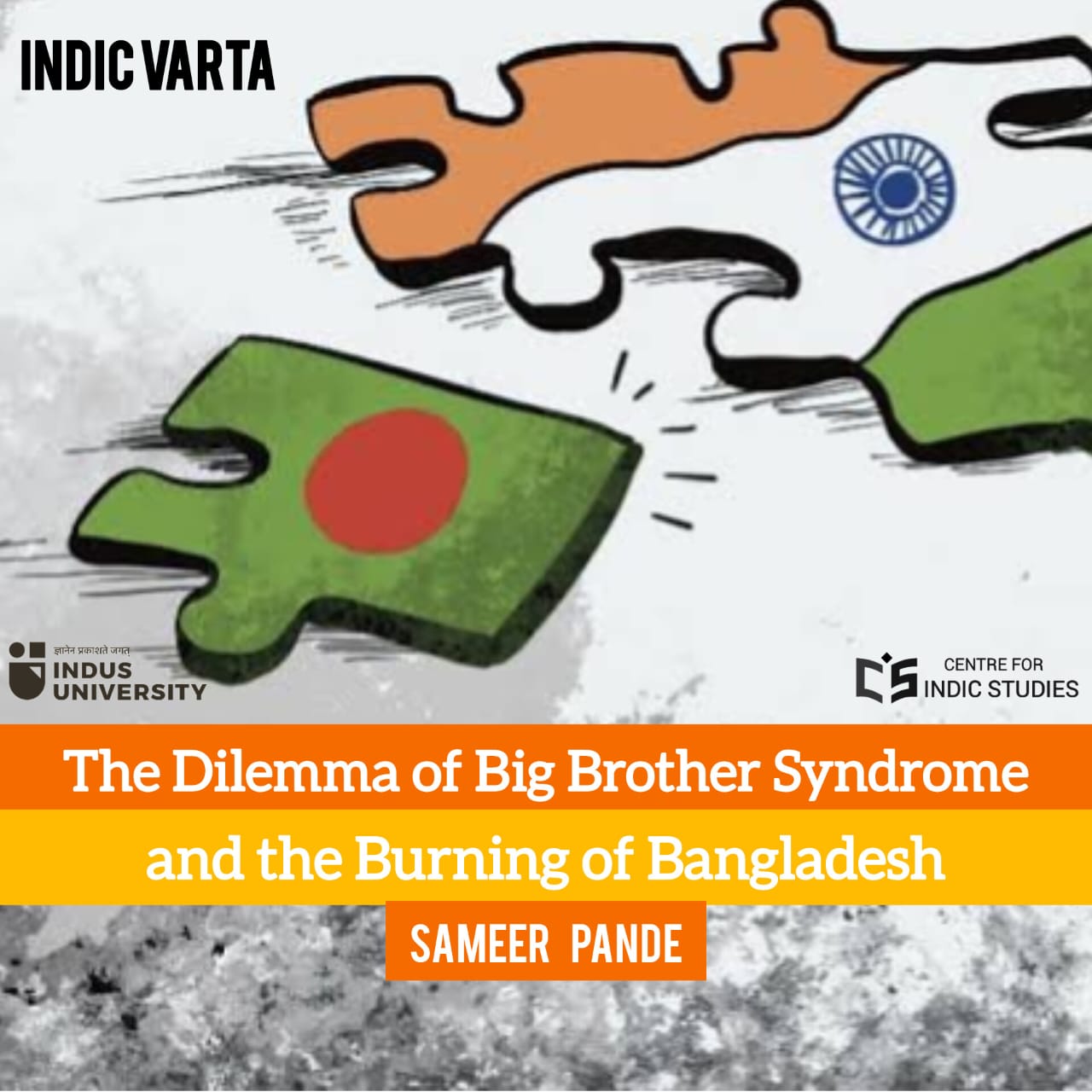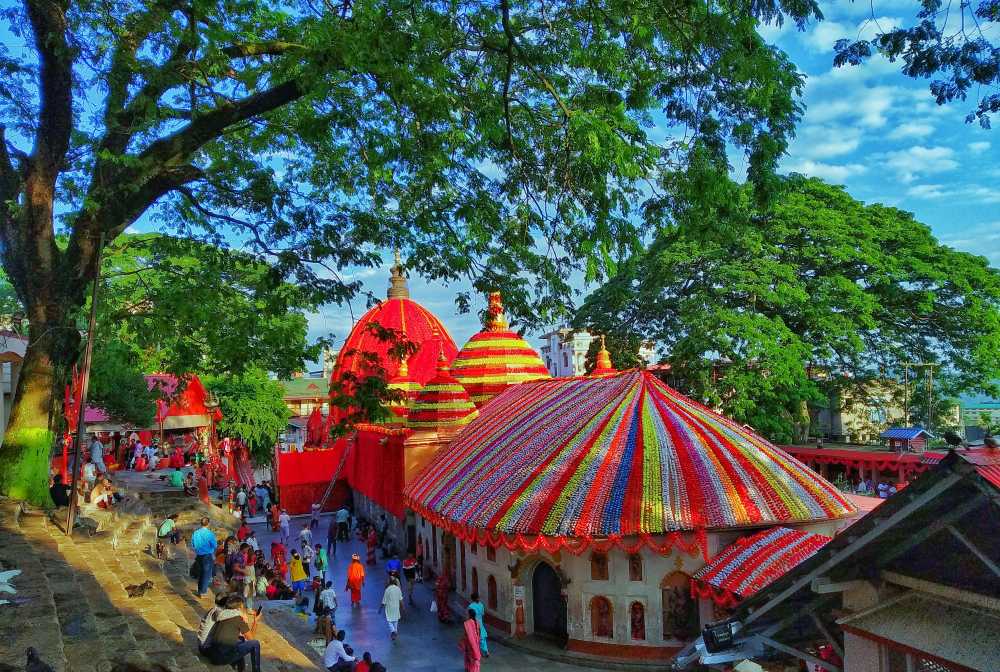- Visitor:28
- Published on:
Is God in Pain? (Part-1)
“Sorrow is only for us, pain is just meant for creatures, but does God also undergo pain and sufferings?”. To answer this the lecturer replies, “If every word is lost in pain then in what words can we express our feelings?”.
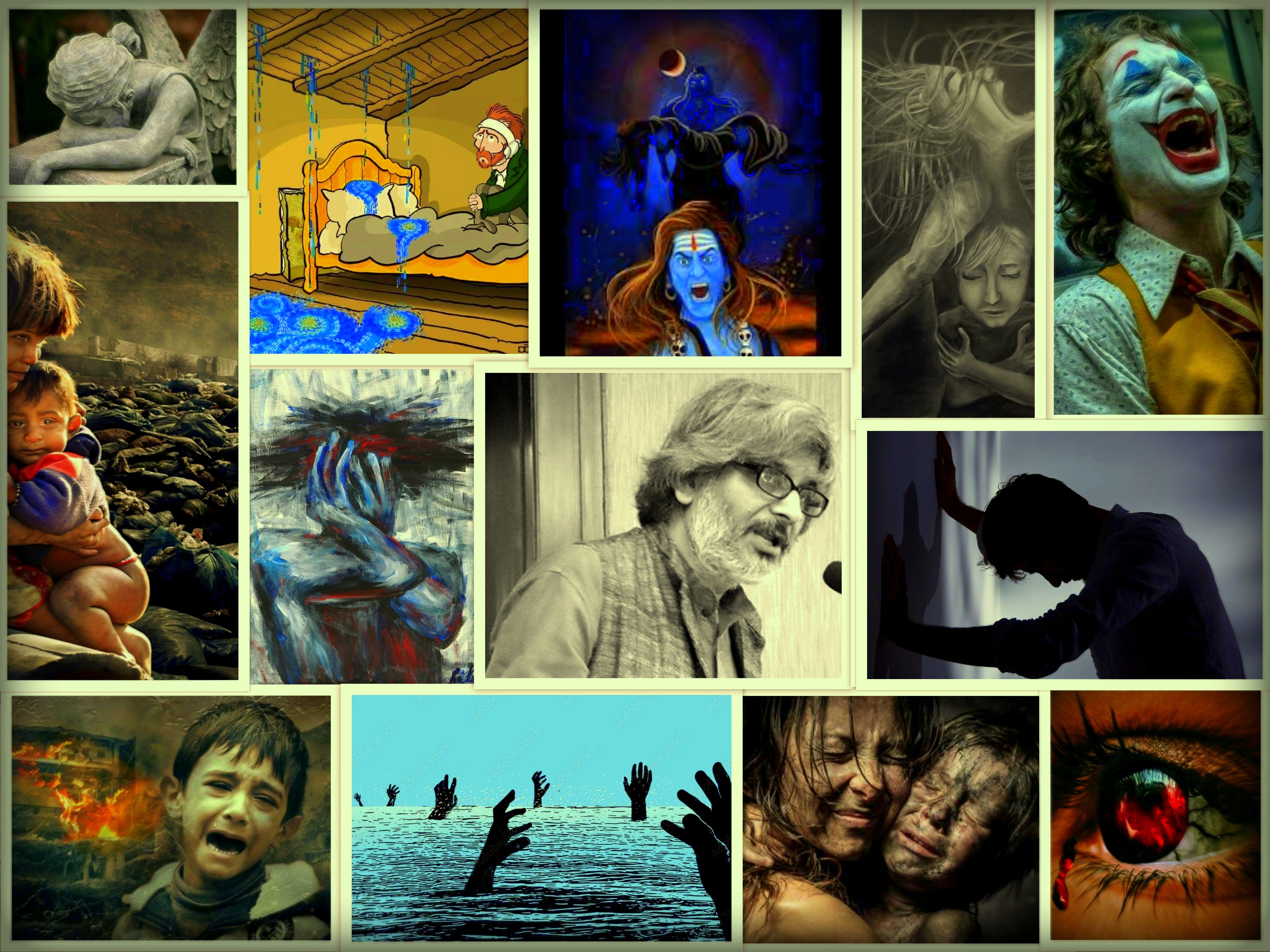
The following content is translated from the lecture given by Sri Arindam Chakrabarti in Bengali. Arindam Chakrabarti is, currently, a visiting professor of philosophy at Ashoka University, India. He is, also, a professor of philosophy at Stony Brook University, where he has been since 2018. Prior to moving to Stony Brook, Chakrabarti taught at the University of Hawaii, where he was the director of the EPOCH Project (Eastern Philosophy of Consciousness and the Humanities). The original lecture was given at the event on the memoery of birth anniversary of Professor. Katyayani Das Battacharya arranged at the Ramakrishna Mission Institute of Culture, Kolkata, 13th July, 2017. Being one of his admirers, the lecture is published in this article format with the intention to spread his voice more for our readers.
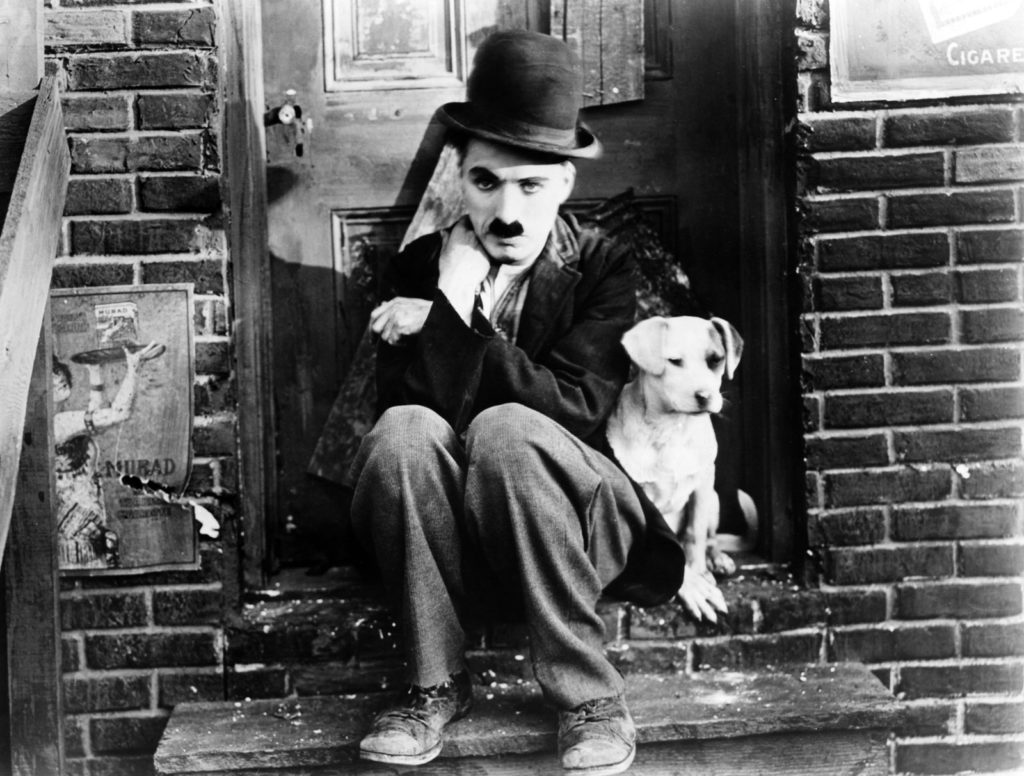
From the silent comedy of Charlie Chaplin’s, “The Tramp” to the most powerful wealthy president of America, Donald Trump– everyone’s life is full of wails and complains. Living life by default means suffering. If any brutal emotionless creator of our sorrowful world has sent us here, imprisoned in the slowly decaying body with the terror of death and sickness, it would not be wrong if we can call Him an extremely cruel punisher, locking us up in the prison full of pain ( हाहाकारागार)- just a prison officer!

The Indian philosophy, whether that is Samkhya, Buddhism, or Nyaya begins with what we call in the language of Rabindranath Tagore’s song- there is sorrow (আছে দুঃখ). And after realizing this and conflicting against the existence of misery, the first and last question that arises in mind is that which we hear from Satyajit Ray’s movie song- how does suffering leave? (দুঃখ কিসে যায়?)

After the Mahabharata war was over, the crying out of the mourning widows for the tattered dead body fleshes eaten by vultures, in the Stri Parva’s beginning, we find a story of misery of the greatest but most foolish creation, named human being from the mouth of Vidura.

But before beginning the narration, Arindam Chakrabarti answers a question asked to him, “Sorrow is only for us, pain is just meant for creatures, but does God also undergo pain and sufferings?”. To answer this the lecturer replies, “If every word is lost in pain then in what words can we express our feelings?”. He continues with a humor saying that, the enlightened master who recomemnded that silence is the best policy to stay, but himself scattered sequence of words and speeches in his books like Vinay Pitaka, Sutta Pitaka , Abhidhamma Piṭaka and many more, stated that the “pain-ness” present in pain is such that, once a pain arises immediately in someone, that person has to feel the search for its cure. Buddha also said that “pain is there” and “pain can be cured”- if these two Noble Truths are not affirmed, no one will search for a treatment for pain. And, while in pain, the mind is bound to recall these terms repeatedly. At this point, the speaker recalls one poem by Achinta Kumar Sengupta, published in Desh Patrika titled “Betha Saare” (Pain can be cured) on the theme of a hawker who sells his medicine to customers assuring that his product can cure their pain. There the last line if literally translated means- “all pain can be cured, but one pain- the pain of detachment from the God, cannot be cured”.
But, without words how can people communicate, argue and learn? Exceptions are there if someone considers those, whom Rabindranath Tagore called “the ones who play only the music without songs”. Here, the lecturer refers to raga Bairagi Bhairav, from where he had got the support of his controversial claim- the God in pain.

And, if songs are considered, they cannot be composed without words. And what words are saying??- “Sati hara udashi Bhariabo kaande” means, the apathetic Bhairava also cries losing Sati pathetically. This line is addressed by him from one of the songs sung by Ajay Chakravarty. Note, that Bhairava also cries. Yes, not only does the avatar of Bhairava in human form cry, Bhariva himself is immersed in tears. In the next line- Bhairava is in vishaad or depressed, leaving his trident and horn-the wind instrument below. So, vishaad or depression had not come only to Arjuna’s mind, Lord Shiva is also grasped by it. Moreover, he had gone crazy in sorrow. Well, thanks to his madness that plenty of Shakti Peethas are there for us today to worship!
‘Panchabhuter phande Brahma pore kande’- “Falling in the trap of five elements of nature, Brahman is also crying”

We have just heard about the sorrow of God just for our fun and satisfaction, that a big personality like the God can also shade tears and be in tension and distress. Now let’s return to the main story mentioned at the beginning of Stri Parva. Once a Brahmin lost his path in a forest, filled with dead flesh-eater carnivores like lions, tigers and bears whose screams are enough to frighten Yamaraj, the God of death himself. Note- as per the language of Mahabharata, Yamaraj can also get scared. A monstrous woman is terrifying him spreading a net to capture deer. Many long five hooded snakes have extended their family in the whole forest. Suddenly, in a splash, the guy fell into a well whose mouth was covered with grasses and foliage. Somehow, he managed to hang upside down in the middle of the well holding a climber. From the bottom of the well, a hissing sound of a cobra is heard. Around the rim of the well outside, a mad elephant is constantly walking around, who has six trunks and twelve legs and blocks the Brahmins path above. If somehow he loses his grip, he will get stung by the poisonous pointed ends of bees flying around a honeycomb. However, at that moment, the small droplets of honey dropping down from the comb have drawn the final urge of the stupid Brahmin to lick up. But suddenly he noticed that two rats, black and white in color, have torn down the creeper in his hand through repeated bites. He will fall down at any moment. Still knowing all these, the tongue of the foolish guy has come outside in greed- just to have a last taste of the honey.
In this narrative, the situation of the Brahmin seen is actually the condition of every one of us, as told by Vidura. Were the public during Mahabharata age casteist? If someone asks why this story considers a person from the Brahmin clan and not from any other caste, the simple answer is that there is no necessity to reply this. It is like when we say “Sangam saranam gacchami, Dharmang saranam gacchami” that does not mean ancient Buddhists secretly supported RSS (Sangh) and they were asking us to surrender to their dharma or religion only i.e. intolerant.
By the request of Dhritarashtra the listener, Vidura now explained the meaning behind the story. The jungle represents maha samsara aranaya or the forest of family world. The terrifying woman with a net is no one but Jara or aging and the well, duly covered with leaves and grasses is our body on which we have so much attachment and trust. And on which we have sandeha or mistrust about “my body or deha” is the dangerous secret reality of the well comprising of the big hollow, the ditch and the trap, The serpent inside is the Kaal or time. Its erect hood indicates that we are still alive and it is also active, standing upwards at present for every one of us reading this story. The elephant tramping outside is Sambatsar. The twelve legs denote the months and the six faces are six seasons. Day and night are indicated by the couple of rats of distinct colors, slowly every moment destroying the duration of our life span, in the form of creeper, through their tiny bites. The bees that are itching the mind for the greed of honey are kama or material desire.


Possibly, in front of this timeless story that gives a vivid picture of the sorrow and reality of human beings, no other story in history can stand- neither Heart of Darkness by Joseph Conrad nor the life story of the escapee Jews facing violent holocaust. Nonetheless, it is a metaphor.
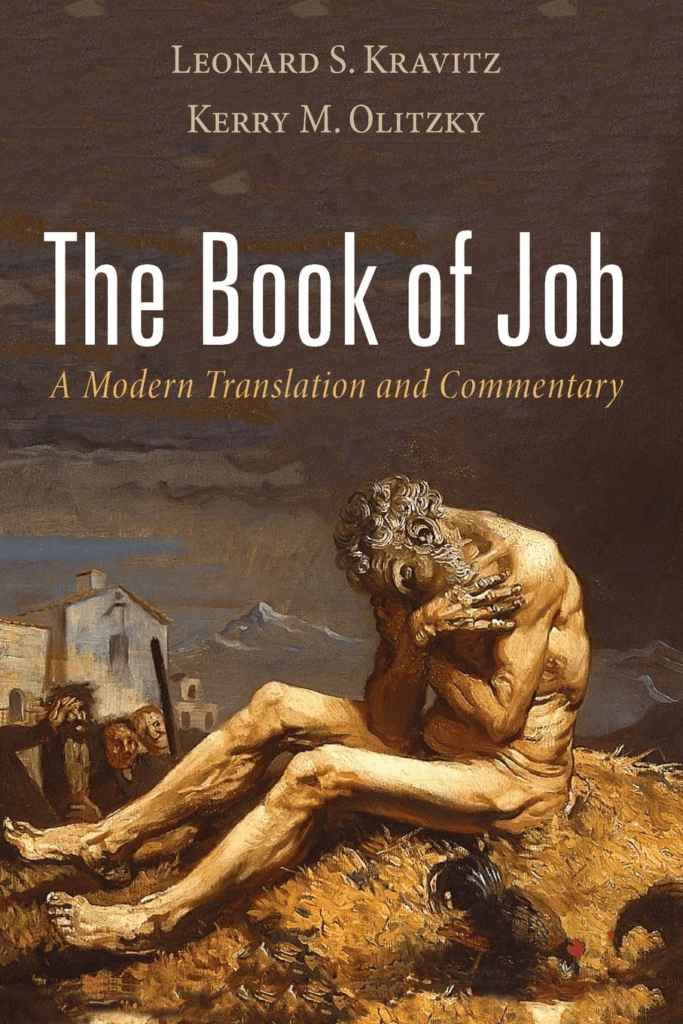
But the Book of Job is not symbolic but an ancient folk narrative. Here, we find an honest and truthful person and at the same time an ideal father, husband and citizen losing all his nearest ones one by one, lying on beds of ashes in distress with disgusting sickness of bloodshed in the body and constantly vilifying his date of birth. He lamented, “Let the dark ominous night be removed from the calendar full of other dates. The ungrateful time must not pass again that has never attempted to stop my mother’s womb and paved the way for my birth. The cursed night has given birth to intolerable pain and danger. Why didn’t I die inside my mother? Why was I not a stillborn. Today my sigh is the only food that has kept me alive. The unstoppable drops of my cry are the only juice I drink”.
Unable to withstand further, Job complained to the God he used to worship saying, “O God, listen to all my allegations against my shameful life. I believe in you. You have kept all the sinners and wicked people happy. The evil ones are prospering. Those who see and realize the most are blind now. And, you are kicking people like me to the end who are upright and of good morale, with repeated and constant punishment in the same hand with which you have created us”

One after one, Job has been facing misery. At least, others gain little success in their life, that make them praise the lord of life. But, Job is without hope. His friends blamed him addressing, “It is all due to the result of your sins, Job. God never makes partiality and injustice.“Replying to the empty unsubstantial theory of consolation, Job spoke in a bitter voice burnt in cry and pain, “Why are you all lying in the name of God? Whose side are you taking? Do you know Him?”.
Finally, God himself appeared in the scene. We might expect as per Hindu Puranas, that seeing his prolonged distress, God might give any boon or blessing, but no! He rubbed to salts to the hot wound rebuking with a counter-questioning, “Let me see, how you answer me now? Are you all-powerful? Do you know everything? Have you kept the Pleiades constellation together? Can you determine the directions of the sun and other stars? Are you able to turn the sea into ice or destroy the whole world with volcanoes? But I have all these powers!”

Making us realize our own ignorance, reminding of our negligible existence and intelligence and standing behind a mysterious cloud above, finally, God took away all of Job’s unending sufferings hitting back at Job’s queries, thus proving and displaying how great He is! Hence, it is seen that His grace was reasonless, same as his prolonged punishment was causeless.
If you are good, you will live happily- and, there is no rule for it. This is what the morale of the story indicates.
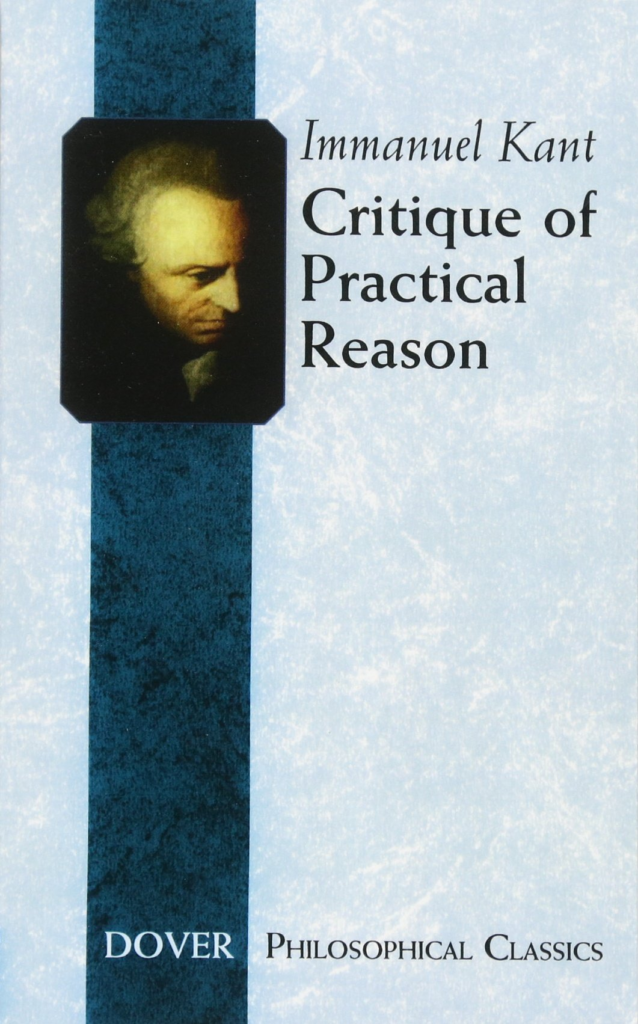
While speaking about moral education, Immanuel Kant in his Critique of Practical Reason’s end section titled Doctrine of Method said that while teaching little children about morality, we teach them stories of good and bad people. Here being good ultimately leads a person towards success. If one is of a pure character and behaves well, though he might suffer in the midway, but at last he ends up gaining positive results. But, Kant denies this. He suggests, “if you want to teach proper ethics make them read the Book of Job. If u make them realize- more the suffering in following religion, the more it will be good for learners. This will motivate them to adopt the religious path. Keeping aside whether anyone follows or not follows religion, at least, he will not pursue the path in false hope.” Strange words indeed!
Not only Kant, even we see Dhritarashtra from Rabindranath’s writing speaking in the same voice. He once asked his wife Gandhari, “What will I keep with me, if I abandon my only son?” and Gandhari urges, “In return, protect and keep the Dharma with yourself”. Like a utilitarian, Dhritarashtra counters in Kant’s style, “What will your Dharma give me?”. Rabindranath’s Gandhari responds calmly, “Just, newer and more sorrow”.
Did Rabindranath admire Kant and to what extent has he gone through his thoughts?- the answer to this question cannot be solved right now!
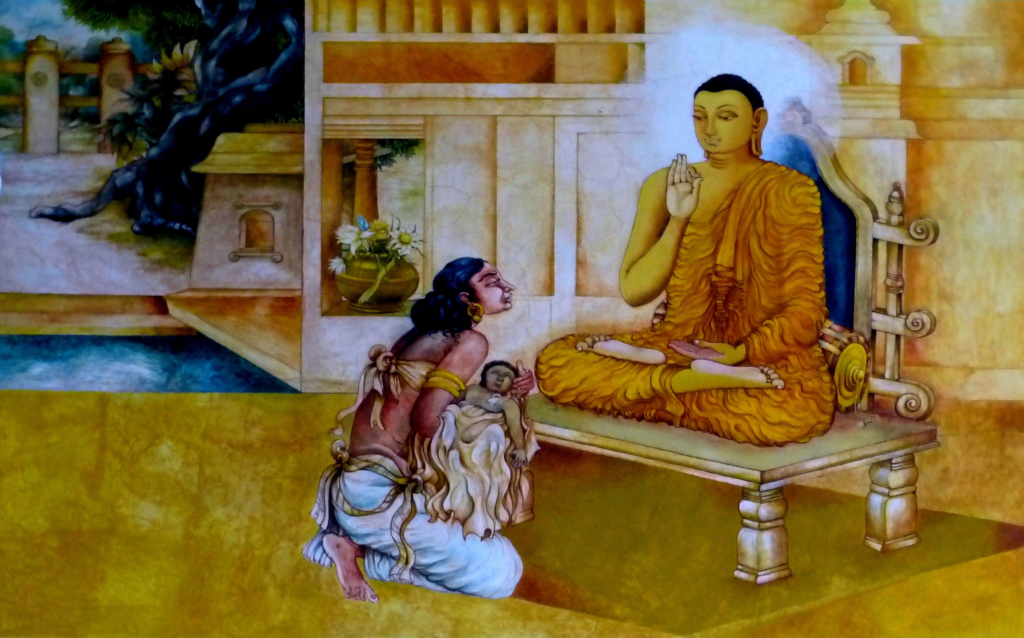
Continuing with this topic, the lecturer narrates two more stories related to this context. The first one is of Kisa Gautami, which is a well-known story from Buddha’s life where Gautama asked the women to bring a handful of mustard seeds from any house where nobody has ever died. The second case is from the speaker’s real-life instance, where he knows one person, his neighbour, whose little child, a boy of 7-8 years old, has died and the same time his elder daughter was suffering from cerebral palsy, since the past 15 years. While asked about his just expired son, the father sighed, “Which sorrow is bigger for me- the sudden demise of my healthy son or the daily teardrops of carrying a daughter’s pain for a long time?”.

A less discussed, but renowned American novelist, Ernest Miller Hemingway, once participated in a short story contest in his latter days and won the first prize. The story was of a single line- “For Sale: Baby shoes, never worn.”
Now, with such a mood, from where does the context or relevance of God comes?
To be continued…
Center for Indic Studies is now on Telegram. For regular updates on Indic Varta, Indic Talks and Indic Courses at CIS, please subscribe to our telegram channel !
Sources of main lecture:
- https://www.youtube.com/watch?v=XhXjXJjouWg
- https://www.youtube.com/watch?v=wjBxjJJ0A30
- 14 min read
- 1
- 0







